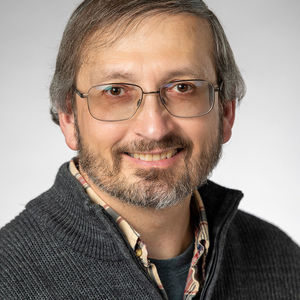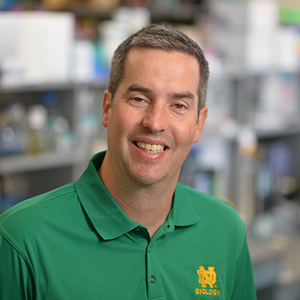Life Sciences: Cancer Biology Online
Students in the Cancer Biology track will actively engage in the study of cancer by first reviewing the scientific literature on hallmarks of cancer, then characterizing specific human tumor cell lines to propose treatment modalities and future research. Students will have the opportunity to learn about cutting edge cancer research being conducted in several Notre Dame research laboratories, interacting with ND cancer researchers via virtual laboratory tours and live Q&A sessions. Student research teams will have the opportunity to present on cancer hallmarks and give their findings regarding characterization of their assigned cancer cell line.
Although the course will focus on the fascinating topic of cancer biology, our course will foster collaborative problem-solving and experiential understanding of science by actively involving student research teams in the design and analysis of actual data, discussion of findings in the primary literature and development of scientific presentation skills.
Course Schedule
This course will be offered online from July 17 - 28, 2023. Students must be online for class sessions from 11:00am - 1:00pm and 3:30pm - 5:30pm (Eastern Standard Time), Monday-Friday. Students should also plan to manage their time to complete homework assignments and group work outside of the designated class times.
Academic Directors
Mark Olsen

Mark Olsen, associate teaching professor and majors/honors biology laboratory program coordinator, conducted his undergraduate studies at St. Michael’s College in Vermont (B.S. in biological sciences, 1981) and his graduate work at the University of Notre Dame (‘89 M.S., ‘94 Ph.D.). Dr. Olsen’s master’s degree research explored the impact of an introduced crayfish on the community ecology of northern Wisconsin lakes and his doctoral work explored behavioral, physiological, and biochemical adaptations for natural sub-zero temperature tolerance in invertebrates.
A member of the Notre Dame faculty since 1994, Dr. Olsen passionately promotes student engagement in undergraduate research by coordinating the annual College of Science Internship Information Workshop and collaborating with College of Science and Engineering colleagues in implementing a five-year National Science Foundation STEP grant to foster student engagement, undergraduate research, and STEM retention.
In addition to his work with science major intents, Dr. Olsen teaches an environmental science course at Notre Dame that engages non-majors in collaborative exploration of many of today’s environmental problems, causes, and solutions via a lively mix of discussion, field-based environmental assessment, and group seminar presentations. He writes and reviews questions for the National Science Bowl and has served as a resource teacher in Place Based Education for elementary and high school instructors.
Dr. Olsen received the Outstanding Faculty Teaching Award from Notre Dame’s Kaneb Center for Teaching and Learning and is currently a member of the Indiana Academy of Sciences, the National Science Teachers Association, and the Association for Biology Laboratory Education.
David J. Veselik

David J. Veselik, coordinator for the Cell Biology Laboratory, Biology Club advisor, and Biology Honors Program co-director, received his B.A. in pre-professional studies in 1996 from the University of Notre Dame. He then conducted graduate studies at Georgetown University where he explored the role of environmental estrogens and the estrogen receptor in the etiology and progression of breast cancer (M.S. 1998, Ph.D. 2006, biochemistry and molecular biology).
Since 2006, David has taught upper level cell biology labs and lectures (BIOS30341/31341). For the past several years, he has led the NSF-funded Research Experience for Teachers (RET) Molecular Biology Workshop at Notre Dame in an effort to make local high school biology curriculums more inquiry-based and investigative. In addition to this David has been active in leading and coordinating numerous outreach projects in the Department of Biological Sciences.